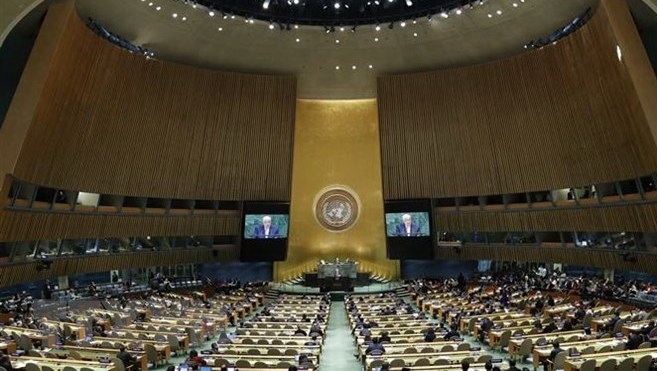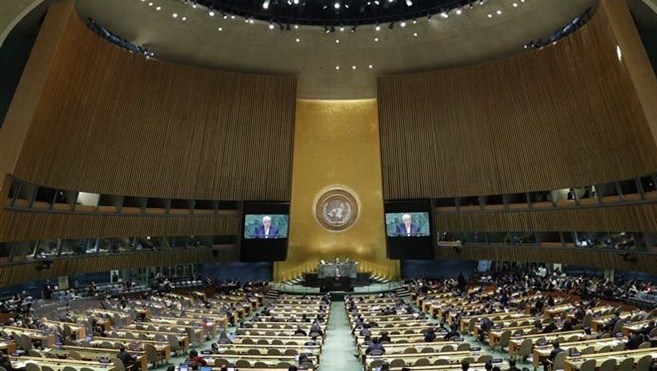



An overview of a session at 73rd UN General Assembly. (Photo: VNA)
The statement was made by Ambassador Dang Dinh Quy, head of the Permanent Vietnam Mission to the United Nations, while addressing the general debate of United Nations General Assembly’s Social, Cultural, and Humanitarian Committee (Third Committee) within the framework of the 73rd UN General Assembly.
Ambassador Quy also attended other sessions in the committee’s working programme which took place from October 15-29 in New York.
He told participants that Vietnam has annual dialogues and consultations with partners such as the US, Switzerland, Australia, Norway and the European Union, and contributes to the ASEAN Intergovernmental Commission on Human Rights.
It is also a member of seven of nine international conventions on human rights, and considering joining the International Convention for the Protection of All Persons from Enforced Disappearance and the International Convention on the Protection of the Rights of All Migrant Workers and Members of Their Families, he stated.
The diplomat said Vietnam is completing a national report on ensuring human rights under the Universal Periodic Review (UPR) mechanism and is scheduled to deliver the report next January.
He called on nations to join hands to find common solutions and maintain the role of UN forums to promote constructive dialogue and goodwill cooperation.
Participating countries affirmed their commitments and called for increased efforts to ensure human rights, especially in 2018 marking the 70th anniversary of the Universal Declaration of Human Rights and the 25th anniversary of the Vienna Declaration and Programme of Action.
They noted the importance and universal value of the two documents, and underlined the significance of promoting and ensuring human rights to maintain and promote peace, security and development.
Delegates also shared their concerns over some matters, including increasing starvation, violence against women and children, discrimination and challenges threatening people’s lives such as conflicts, natural disasters, climate change, diseases and terrorism.